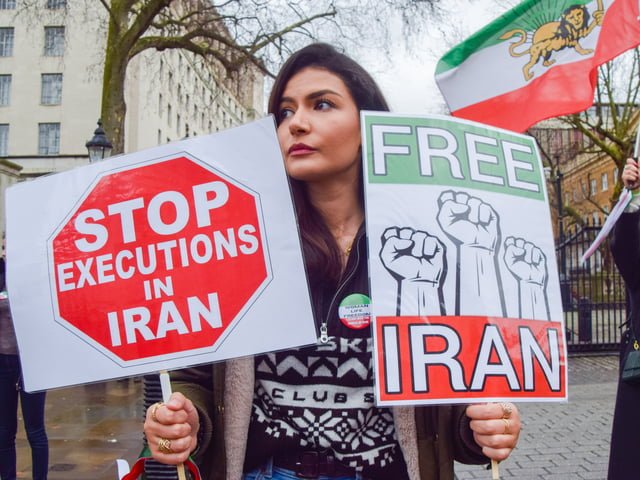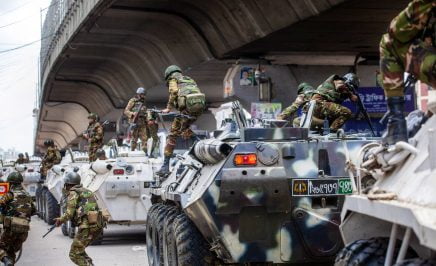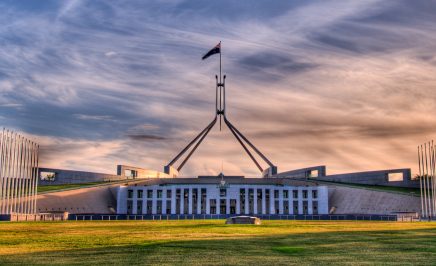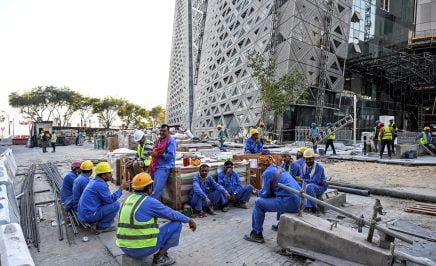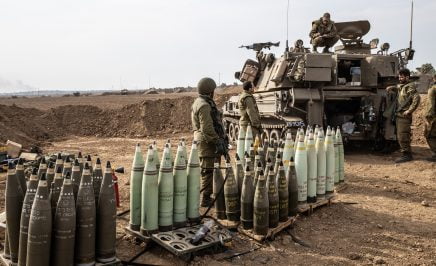Responding to fears over the imminent execution in Iran of three protesters – Majid Kazemi, Saleh Mirhashemi and Saeed Yaghoubi – from Esfahan after state media broadcast their forced “confessions” and the Supreme Court upheld their unjust conviction and death sentence despite torture and fair trial concerns, Diana Eltahawy, Amnesty International’s Deputy Director for the Middle East and North Africa, said:
“Majid Kazemi said in an audio recording from prison that he was forced to make false self-incriminating statements after interrogators beat him, gave him electric shocks, subjected him to mock executions, and threatened to rape him, execute his brothers and harass his parents.”
“The use of the death penalty against these men is a blatant act of vengeance against a courageous generation of protesters for steadfastly demanding the rights of Iranian people during the past seven months. It is further evidence that the authorities are taking increasingly violent and extreme measures to torment and terrorize people in Iran to end the protests at any cost and impose silence and subservience through brute force.”
“Amid the authorities’ horrific execution spree of scores of people since the end of April 2023, the international community must take urgent and bold action to stop the execution of these protesters before it is too late. Prison authorities told their families [yesterday] it was their final visit.
“The international community must also press the Iranian authorities to immediately establish an official moratorium on executions. We urge all states to exercise universal jurisdiction over all Iranian officials reasonably suspected of criminal responsibility for crimes under international law.”
BACKGROUND
Majid Kazemi, Saleh Mirhashemi and Saeed Yaghoubi were arrested in November 2022 following their participation in protests in Esfahan city amid the nationwide protests triggered by the death in custody of Mahsa (Zhina) Amini.
According to informed sources, the three men were subjected to torture while forcibly disappeared and forced to make incriminating statements, which formed the basis of the criminal case against them.
Sources said that interrogators suspended Majid Kazemi upside down and showed him a video of them torturing his brother, whom they also detained. They also subjected Majid Kazemi to mock executions at least 15 times by standing him on a chair and putting a rope around his neck, only to pull him down at the last moment. In the days leading up to the trial, they threatened to kill his brothers if he did not accept his charges and “confess” to whatever they said.
In an audio message from inside Dastgerd Prison, where the men are held, Majid Kazemi said: “I swear to God I am innocent. I didn’t have any weapons on me. They [security forces] kept beating me and ordering me to say this weapon is mine. … I told them I would say whatever they wanted, just please leave my family alone. I did whatever they wanted because of the torture.”
The men were put on trial in December 2022 and January 2023 and sentenced to death on the charge of “enmity against God” (moharebeh) for the alleged possession of a firearm. On 10 May, the authorities announced that the men’s sentences had been upheld by the Supreme Court despite due process violations, significant procedural flaws, lack of evidence, and torture allegations that were never investigated.
According to informed sources, the authorities had told the men’s families on several occasions before the Supreme Court’s decision that they would be pardoned and released due to lack of evidence.
The families were called for a visit with the men on 17 May, during which prison authorities told them that this was their final visitation, leading to serious concerns that they may be executed as early as the morning of 18 May. The families called for a protest outside Dastgerd prison at 10pm in Tehran on 17 May.
Amnesty International opposes the death penalty in all cases without exception, regardless of the nature or circumstances of the crime; guilt, innocence or other characteristics of the individual; or the method used by the state to carry out the execution; because the death penalty violates the right to life as proclaimed in the Universal Declaration of Human Rights. The death penalty is the ultimate cruel, inhuman and degrading punishment.
